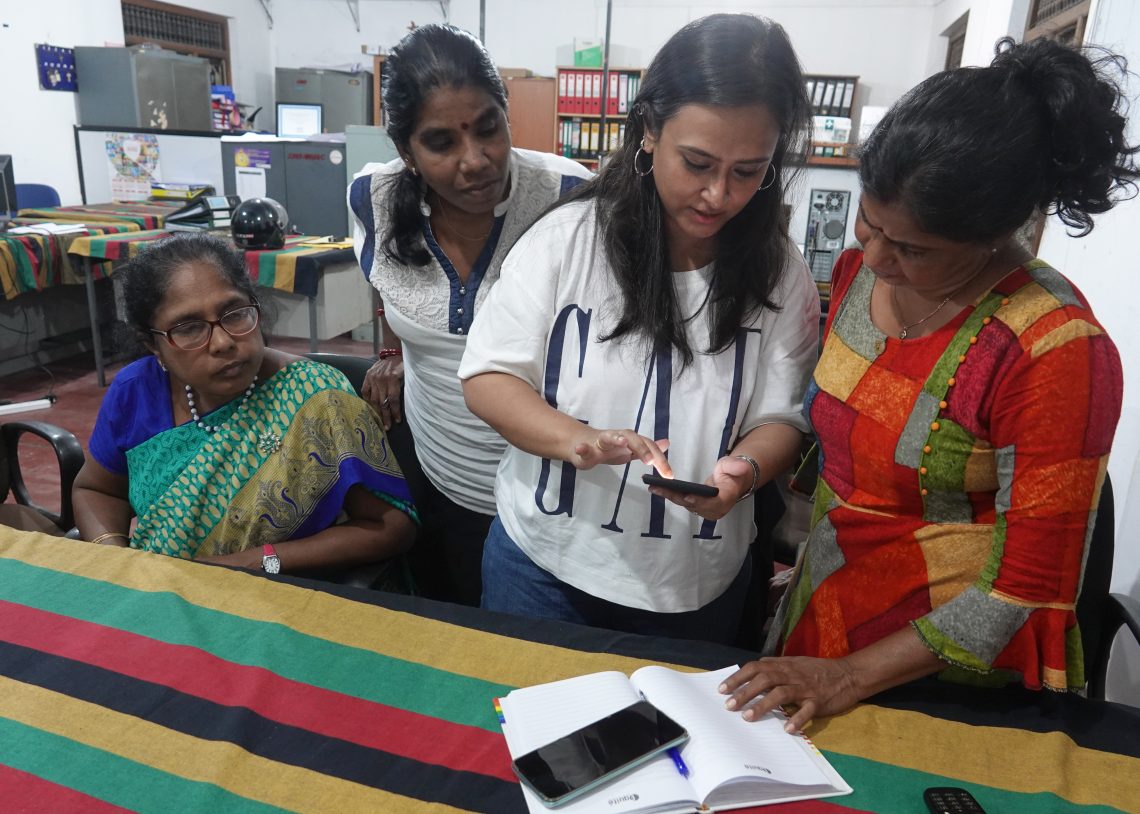Make your 2X MATCHED gift today!
This week only: Every $1 will be matched with $2 to empower women worldwide.
This week only: Every $1 will be matched with $2 to empower women worldwide.
Posted on 03/18/2022

Sri Lanka emerged from 26 years of civil war in 2009. And although peace is welcome, women here still face myriad challenges to leading, safe, prosperous lives in the aftermath of the war. These challenges include sociocultural norms which limit women’s ability to work, laws that limit women’s access to loans for business growth, sexual harassment and other forms of gender-based violence which puts women at risk when they are trying to carry out normal business activities, and limited business management skills. Many of these women are war widows who lost their spouses in the war, and are now forced to singlehandedly provide for their families. At the same time, COVID-19 has had a devastating impact on the Sri Lankan economy and families across the country have seen their incomes slashed.
The WAGE Sri Lanka project works with local women leaders to address some of the multifaceted challenges women in their community face, through the formation of women’s collective action associations, training sessions on gender sensitivity and inclusion as well as sessions to improve their skills in participating in local decision-making processes. Furthermore, the project extends business skills and financial literacy training, linkages to women-friendly financial products, and advocacy surrounding laws that limit women’s community participation and economic growth.
At a recent Thursday Talk, Nishandeny Ratnam, Senior Project Manager at Search for Common Ground and Purna Chowdhury, Senior Program Manager at Grameen Foundation, shared how we are integrating women’s political participation in local communities with economic empowerment and gender activities to overcome the challenges women face to peace and prosperity in post-conflict Sri Lanka. Here’s what Purna shared.
This transcript has been edited for clarity.
Initially, when we started conceptualizing this program, it focused on women leaders from civil society organizations to address challenges with security and gender-based violence. But we realized that women’s economic empowerment is a key enabler, in terms of improving their decision-making abilities, their self-worth, their right to have choices, to access opportunities, resources, and services—and the right to control their own lives in the household and outside of the home.
This realization led to the integration of women’s economic empowerment within the existing WAGE program. Through the rapid-needs and market assessments, we found that women cannot access formal financial services and products, that they’re unable to join business or agricultural cooperatives, and that they’re ineligible for loans. These are very typical challenges to women’s economic empowerment. But they can be challenged through changes to policy. That’s why women’s representation is so important to women’s economic empowerment.
This program has encouraged participation from family members and other community stakeholders. The training we’ve done on business skills or financial literacy have generated a lot of participation from family members, to support the women in their enterprises. Community stakeholders and local government officials were really keen to know what we were doing and why we were doing it. We engaged with them and explained our initiative, and that sparked immediate interest. This will ensure the sustainability of the project—if there’s such interest at that level, they can take the project forward without any dependence on our resources or interventions.
A couple of months were very challenging as COVID surged from September to November, but we adapted completely in-person activities to virtual mode, and hand-hold not just women but leaders who were implementing the program with us.
The results we got after those two months were incredible. We had distributed tablets to each of the women leaders, and those who were participating now had access to a gadget, which was so very empowering because they did not have to compromise on time or access to the gadget with a family member. They could use it as a training platform at their own convenience. We also created tech trainings on how to use Zoom, Gmail, and Google Sheets, and they were able to do that, and share their observations and input.
This really changed their mindset. Eventually they created WhatsApp groups and shared their experiences, their success stories, and questions with one another, through a completely virtual mode of communication.
[In this way], empowerment under WAGE is not just one form of empowerment. It is holistic empowerment. It cuts across every aspect of her life. So in order to build that persona of an empowered woman, there are many significant interventions—capacity development in various topics, from CEDAW and the UN mechanisms for advancing women’s and broader gender issues, to financial literacy and business skills. Then we have also created linkages between these women leaders and service providers, financial service providers or business services providers, [that become] the custodian of the rights and safety of the woman.
The magic of empowerment is finding that solidarity group at the local level. Now women leaders can reach out to each other, and that is an enormous strength for the women. Eventually, that will culminate into an action project, where they will be able to drive the embedded agenda of women’s peace and security, or economic empowerment activities, to financially include this target section.
Women and Girls Empowered (WAGE) is a global consortium to advance the status of women and girls, led by the American Bar Association Rule of Law Initiative (ABA ROLI) in close partnership with the Center for International Private Enterprise, Grameen Foundation, and Search for Common Ground. WAGE is funded by the U.S. Department of State Secretary’s Office of Global Women’s Issues.
*Disclaimer: The views and opinions expressed in this blog post do not necessarily reflect the views of the United States Government